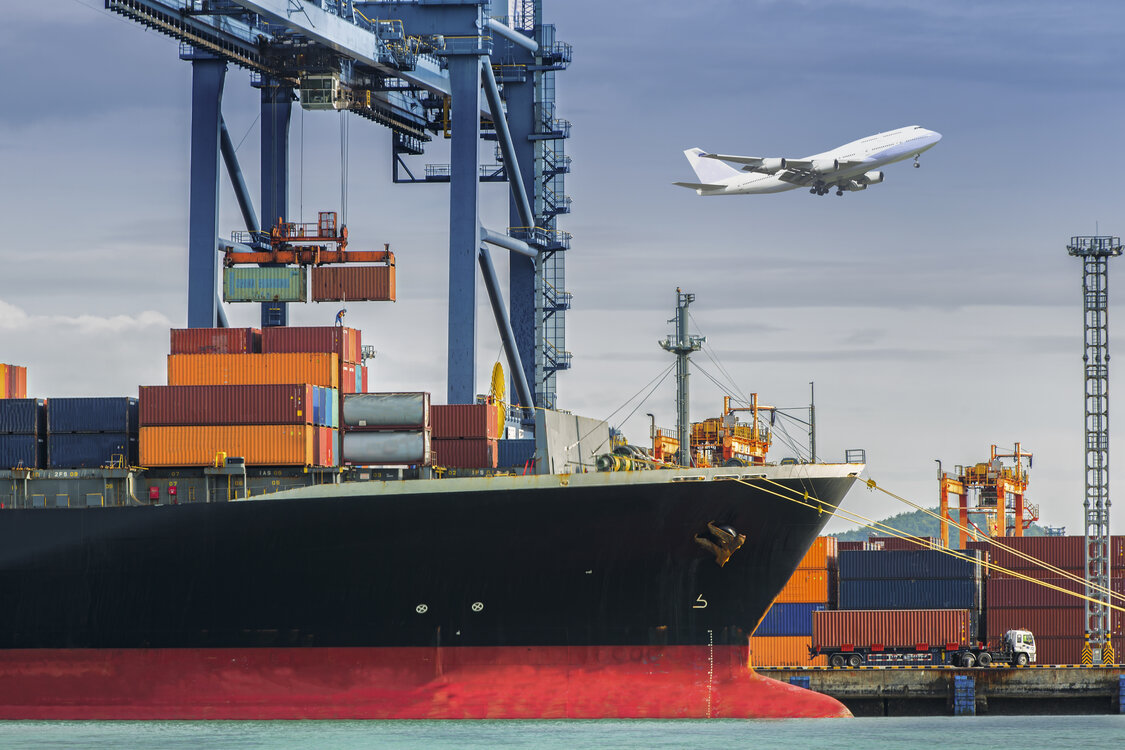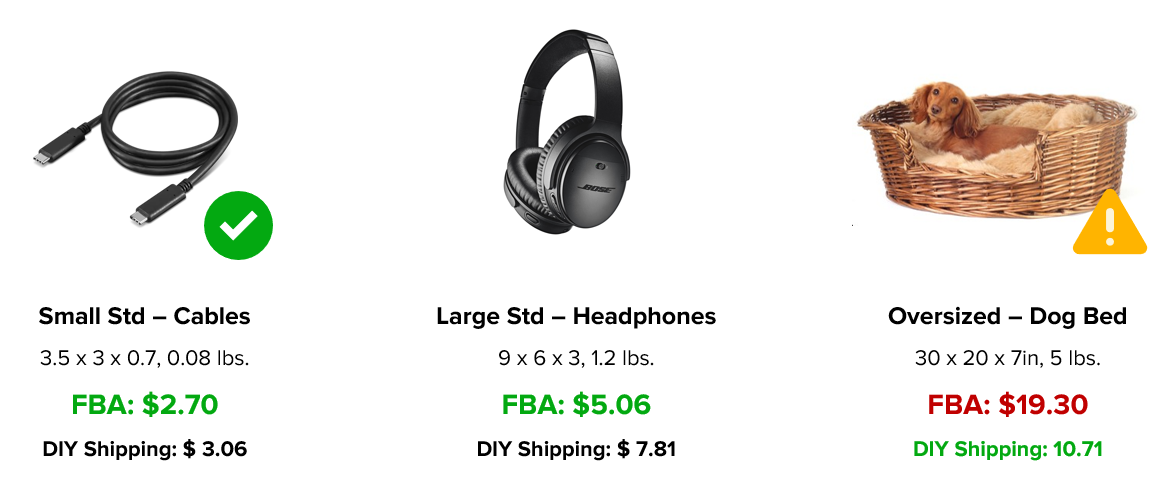How to Maximize Your Exit with Top-Notch Logistics
Amazon sellers that follow Empire Flippers know that the number one factor in valuing any online business is the net profit.
At the highest level, the efficiency with which you run your supply chain will flow straight through to your final price. With the average sales multiple for Amazon FBA businesses rising to 28.5 and above, every dollar saved in operations will flow through to you nearly thirtyfold when the time comes for your exit.
Your valuation isn’t just about dollars and cents, though, and you might be surprised by the other ways in which your logistics impact your ability to exit at the number you want. In addition to directly influencing your sales multiple, the strength of your supply chain and fulfillment strategy are critical to potential buyers’ evaluation of the long-term viability of your business.
In this article, we’ll explain the biggest ways in which your logistics impact your exit, and we’ll share advice on how to implement the best strategy possible to maximize your valuation.
Minimize Fulfillment & Shipping Costs
As we mentioned above, the most obvious way in which logistics impacts your valuation is the amount the cost of your day-to-day operations take away from your bottom line. Where you store your inventory, how you pack it, and how you ship it can easily cost or save you multiple dollars per order. If you sell $20 items, a $1 improvement in your shipping cost will net you a whopping 5% profitability boost. Plug that into an Amazon valuation calculator—you’ll love the boost.
If you’re an Amazon FBA seller (which we know Empire Flippers enthusiasts are), we first recommend that you leverage FBA for what it’s great at: small items. FBA has industry-leading ecommerce fulfillment fees for small items, so it makes sense to use it where it maximizes your margin. Be wary of using it for items larger than a few pounds, though—it quickly becomes more expensive than other options.
Simply leveraging FBA can be the easiest option for a seller. Unfortunately, it’s often not so easy.
If you can’t get all the inventory that you’d like into FBA, or if you sell products that are over just a few pounds, then you need an efficient FBA alternative that can deliver quickly while remaining affordable.
If you don’t devote much time to thinking about your FBM, you’re likely leaving money on the table. If you rely on your Amazon FBA prep warehouse to occasionally do FBM, for instance, they will often ship all your FBM orders from a single location via economy service. This hurts you with a doubly punishing combination of longer delivery times and higher shipping fees. Longer delivery times will tank your conversion rate and threaten your position in the Buy Box, while the higher shipping fees mean that the sales that you do get come with a thinner margin.
An FBM solution that works like FBA for medium-to-large products and your overflow inventory is essential to creating a robust and profit-boosting logistics strategy.
Enable Valuation-Boosting SKU Diversity
You might not immediately associate SKU diversity with your supply chain, but a strong logistics strategy is, in fact, vital to your ability to diversify and reap the rewards of a higher valuation. All else equal, buyers prefer businesses with diversified SKU profiles to those with all their eggs in a few baskets because it’s lower risk.
At the start of the process, a strong supply chain means strong relationships with manufacturers and suppliers. The better your relationships, the more ability you’ll have to expand your product line—and stay ahead of the competition.
When it comes to fulfillment, more SKUs mean more complexity, more challenges with FBA, and a stronger need for an efficient FBM solution. In April 2021, FBA changed the way it calculates inventory storage levels from ASIN-based to category-based. The upshot is that SKUs used to each have their own inventory limits, but now they share a limited pool with other similar SKUs.
This means that the more SKU diversity you have, the more you’re held back by inventory limits. In particular, it’s particularly difficult to launch new products as an FBA seller because brand-new products will reduce your sell-through rate and thus your limit, which could harm your ability to keep your best sellers stocked.
A robust FBM backup solution enables you to handle the complexity of managing fast-moving SKUs alongside a robust portfolio of niche and emerging SKUs without worrying about FBA pulling the rug out from under you. You can launch new SKUs through your FBM solution so that you maximize your FBA inventory with just fast-moving small SKUs. The FBA inventory will continue to push results for you, while you also take advantage of the flexibility to grow with FBM.
And once you’ve grown to a diverse SKU profile, you’ll enjoy a higher valuation than similar businesses that rely on just a few hero SKUs.
Never Go Out Of Stock
Last, but certainly not least, a top-notch logistics strategy will prevent the single worst thing that can happen to your FBA business: a stockout.
The profound negative impact of a stockout will severely depress your valuation, and in some cases, it will entirely derail an exit. In our recent webinar on How to Maximize Your Amazon Business Value, Greg Elfrink of Empire Flippers shared the sad story of sellers that stop replenishing close to an exit, only to go out of stock and see the deal fall apart. While you may not fall prey to such an extreme event, a stockout at any time will seriously hurt your valuation.
Of course, stockouts hurt all businesses—who wants to stop selling?—but they’re uniquely punishing for FBA sellers. The reasons are twofold: first, stockouts have an immediate negative effect on your competitiveness on Amazon, and second, they have lingering long-term effects that make it hard for you to get back to your previous peak.
When you go out of stock, you lose your sales rank. Did you know that when you’re back in stock, you don’t just get your old ranking back? Compare your branded search volume to your paid advertising volume—after a stockout, you’ll see a severe drop in traffic from the latter category. You’ll have to redo all of your hard work to re-win the Buy Box, at great expense.
On top of that, the stockout will hurt your IPI score, which could limit how much inventory you can place in FBA. This makes you even more vulnerable to future stockouts and can trigger a negative spiral in which you have to repeatedly turn off a SKU, losing rank and inventory space, until its sales are a shadow of what they once were.
The only reliable way to avoid stockouts is to use a trusted FBM backup solution. The unfortunate not-so-secret truth of Amazon FBA in 2022 is that even with them “lifting limits,” their receiving still often takes weeks (or even months). For sellers running a tight logistics process and lean inventory, this means that it only takes one worse-than-usual receiving delay from FBA to knock a SKU out of stock.
If you have a great FBM fulfillment services partner, then you can simply turn off the FBA listing, turn on the FBM listing, and keep on selling if FBA threatens your sales. As we covered earlier, the best FBM partners won’t just be shipping from a single warehouse—the best have created Amazon-like networks across the country. With them, your customers will still see fast delivery dates on your listings, keeping conversion high, and they’ll minimize your fulfillment spend by placing inventory close to customers.
Recap
Your supply chain and fulfillment strategies play a critical role in helping you get the biggest valuation you can for your business. While they have a big and obvious impact on your profitability, they also have a less visible but no less important impact on your ability to diversify your SKUs and avoid exit-killing stockouts.
Our advice for FBA sellers is simple: find an FBM fulfillment partner that can do it all, from FBA prep and forwarding to fast and affordable ecommerce fulfillment. It’s the ultimate backstop against stockouts, and it opens up huge possibilities for growth, from additional SKUs to other marketplaces. And if you’re looking towards your exit, it will help you get every last penny you can for your business.






